#Organization of Islamic Cooperation (OIC)
Text
Today the World 🌎 is Observing International Day to Combat Islamophobia! This Day is Observed Annually on March 15th, Since Organization of Islamic Cooperation (OIC) Council of Foreign Ministers of Member States (CFM), in Its 47th Session, November 2020, Unanimously Adopted a Resolution Led By Pakistan to Observe March 15th as the “International Day To Combat Islamophobia.”
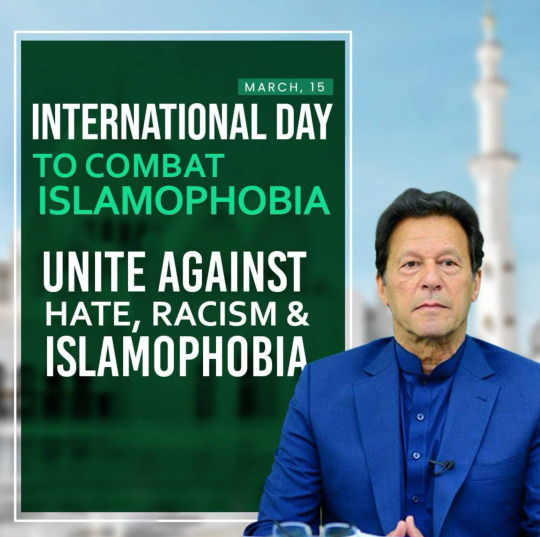
#March 15th#International Day to Combat Islamophobia!#Organization of Islamic Cooperation (OIC)#Council of Foreign Ministers of Member States (CFM)#Unanimously Adopted Resolution By the United Nations 🇺🇳#Resolution Led By Pakistan 🇵🇰#Former Prime Minister | Imran Khan
2 notes
·
View notes
Text
Ertuğruloğlu's statement to the Organization of the Islamic Cooperation
Statement by TRNC Minister of Foreign Affairs Tahsin Ertuğruloğlu at the Annual Coordination Meeting of the Ministers of Foreign Affairs of the Organization of the Islamic Cooperation (OIC) (New York, 21 September 2023)
“It is a distinct honour for me to address the Annual Coordination Meeting of the Ministers of Foreign Affairs of the OIC member states. I extend you all the heartfelt greetings…
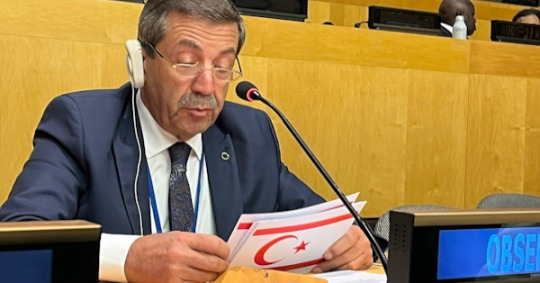
View On WordPress
#Annual Coordination Meeting#Ministers of Foreign Affairs#Organization of the Islamic Cooperation (OIC)#statement#Tahsin Ertuğruloğlu#TRNC Minister of Foreign Affairs
0 notes
Text
Addressing the Evolving Terrorist Threat by Strengthening Cooperation Between the UN Global Counter-Terrorism Coordination Compact and Regional Organizations (2023 Counter-Terrorism Week Side-Event)
The Side Event "Addressing the Evolving Terrorist Threat by Strengthening Cooperation Between the UN Global Counter-Terrorism Coordination Compact and Regional Organizations" is co-organized by the United Nations Office of Counter-Terrorism (UNOCT), the African Union (AU), and the Organization of Islamic Cooperation (OIC).
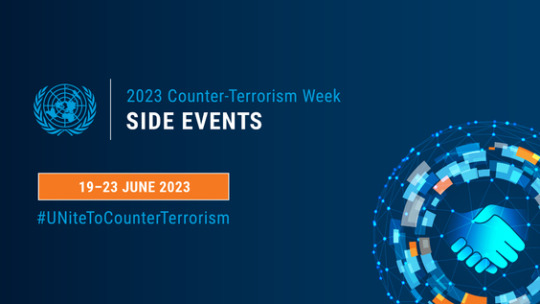
#United Nations Office of Counter-Terrorism (UNOCT)#African Union (AU)#Organization of Islamic Cooperation (OIC)#International cooperation#Terrorist Threat#needs of victims#unitetocounterterrrorism#counter terrorism week#panel discussion#side events
0 notes
Text
Combating Intolerance and Discrimination against Muslims.
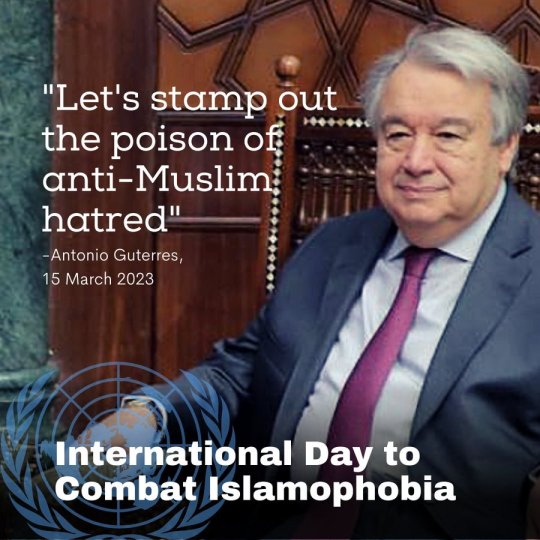
Commemoration of the International Day to Combat Islamophobia 2023.
Opening Remarks:
- Video message of H.E. Ms. Tatiana Valovaya, Director General of the United Nations Office in Geneva
- Video Message of H.E. Mr. Hissein Brahim Taha, Secretary General of the Organization of Islamic Cooperation (OIC)
Presentation of a short film on Islamophobia.
Speakers:
o Ms. Nada Al-Nashif, UN Deputy High Commissioner for Human Rights
o Mr. Ahmed Shaheed, Professor in the School of Law at the University of Essex, former UN Special Rapporteur on Freedom of Religion or Belief
o H.E. Mr. Ismail Hakki Musa, Ambassador, Personal Representative of the OSCE Chairperson-in-Office on Combating Intolerance and Discrimination against Muslims (online)
o Mr. Alexandre Guessel, Special Representative of the Council of Europe's Secretary General on antisemitic, anti-Muslim and other forms of religious intolerance and hate crimes (online)
o Mr. Taha Ayhan, President of the Islamic Cooperation Youth Forum.
Interaction with the participants.
Moderator:
o H.E. Mrs. Nassima Baghli, Ambassador, Permanent Observer of the OIC.
#UNITED NATIONS OFFICE IN GENEVA - UNOG#ORGANIZATION OF ISLAMIC COOPERATION - OIC#Intolerance and Discrimination#15 march#islamophobia#international day to combat islamophobia#religion or belief
0 notes
Text
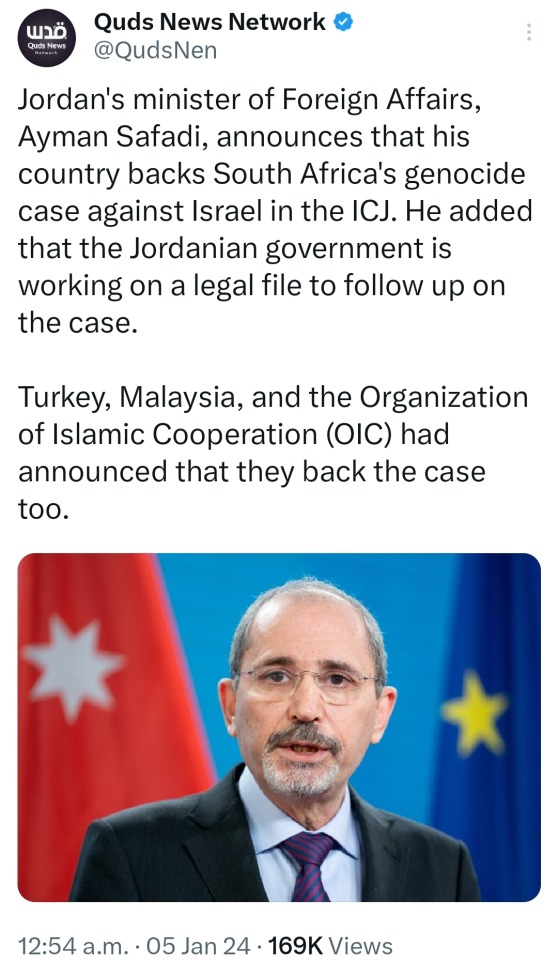
Jordan's minister of Foreign Affairs, Ayman Safadi, announces that his country backs South Africa's genocide case against Israel in the ICJ. He added that the Jordanian government is working on a legal file to follow up on the case.
Turkey, Malaysia, and the Organization of Islamic Cooperation (OIC) had announced that they back the case too. [@/ QudsNen on X. 01/05/24.]
#feminist#feminism#social justice#free palestine#palestine#freepalastine🇵🇸#free gaza#gaza#gaza strip#gaza update#current events#current news#international criminal court#genocide#human rights violations#united nations#human rights
474 notes
·
View notes
Text
Amnesty International says Israel “failed to comply with ICJ ruling”
More than 50 states and organizations have presented their testimony at the International Court of Justice (ICJ), which concluded its hearings on Monday, discussing the illegality of Israel’s military occupation of the West Bank, Gaza Strip, and East Jerusalem.
The Organization of Islamic Cooperation (OIC) said on Monday that “a just, lasting and comprehensive peace based on a two-state solution in Palestine is the only way to ensure security and stability of all people in the region and protect them from the cycle of violence.”
ICJ is expected to issue a non-binding legal opinion by the judges on Israel’s occupation of Palestinian lands captured in June 1967, sometime this summer.
Israel has shunned sending a representative to the Hague, instead filing a five-page written statement, saying that the ICJ’s case “aimed at harming Israel’s rights to defend itself from existential threats.”
On Monday, it submitted a report to the ICJ detailing steps it is taking to comply with a court order in January, to prevent genocidal actions in Gaza. Since then, Israel killed nearly 3,000 Palestinians.
Amnesty International said that Israel “failed to take even the bare minimum steps to comply” with the ICJ ruling.
Heba Morayef, the Regional Director for the Middle East and North Africa at Amnesty International, said that “not only has Israel created one of the worst humanitarian crises in the world, but it is also displaying a callous indifference to the fate of Gaza’s population by creating conditions which the ICJ has said places them at imminent risk of genocide.”
#israel#free gaza#gaza strip#gazaunderattack#genocide#israel is a terrorist state#jerusalem#gaza#free palestine#palestine#tel aviv#rafah#west bank#news#palestine news#war on gaza#news update#palestinian resistance#war news#northern gaza#icj#icj hearing#icj case#icj ruling#icj genocide case#international court of justice#hamas
96 notes
·
View notes
Text
Iranian President Ebrahim Raisi arrived in Saudi Arabia on Saturday to attend a summit on Gaza, making him the first Iranian president to visit the Gulf kingdom in years, after a thaw between the longtime rivals earlier this year saw them restore diplomatic ties.
Raisi was seen greeting Saudi officials after landing at the airport. He donned the traditional Palestinian keffiyeh scarf.
President Ebrahim Raeisi of Iran says the Israeli regime must be brought to justice in international courts over its genocide of the Palestinian people in the besieged Gaza Strip.
Raeisi made the remarks while addressing the joint emergency meeting of the Arab League and the Organization of Islamic Cooperation (OIC) on the issue of Gaza in Riyadh, the capital of Saudi Arabia, on Saturday.[...]
“Now that the international assemblies under the influence of the United States are suffering from indecisiveness, and lack of character and identity, we must take the field.”
The president said the Arab and Muslim countries shoulder the responsibility towards the issue of Palestine and the oppressed people of Gaza.
Raeisi proposed Iran’s 10 urgent solutions and suggestions for the benefit of the Palestinian nation.
The president urged Muslim leaders attending the summit to take a “decisive and swift” decision in favor of Palestinians.
Raeisi said the United States and Israel must be obliged to accept an immediate halt to the war machine.
The Iranian president gave primacy to the complete lifting of the human blockade of Gaza and immediate and unconditional reopening of the Rafah border crossing in cooperation with Egypt to send humanitarian aid to people in Gaza as Iran’s second proposal.
The president said the pressure exerted by the US and its Western allies is by no means an excuse to close borders.
As Iran’s third offer, Raeisi urged Israel’s immediate military withdrawal from Gaza, saying the Gazan territory belongs to Palestinians and not those who act under the command of the US and Israel.
He warned all countries, including Muslim nations, to be cautious about any American-Zionist plot under the pretext of ensuring security in Palestine.
Raeisi said Iran’s fourth proposal urges all Muslim countries to terminate any political and economic relations with Israel. He said economic sanction, particularly in the energy sector, against the regime must figure high on the agenda.
As Iran’s fifth offer, the president called on all Muslim countries to label the Israeli regime’s army a terrorist organization. He stressed the importance of establishing an international court to prosecute the criminal leaders of Israel and the US, particularly those who have played a role in the genocide in Gaza.
The president called for the establishment of a special fund for the immediate reconstruction of Gaza with the acceptance of the Muslim countries attending the summit
Referring to an Israeli airstrike on Al-Ahli Baptist Hospital in the besieged Gaza Strip, which killed at least 500 Palestinians, the president said October 18 should be named as the day of genocide and crime against humanity.
If Israel keeps its crimes going in the “unequal war,” Raeisi said, Muslim countries must arm the Palestinian people and help them fight the occupying warmonger. The president undercored the importance of the liberation of Palestine “from the river to the sea” as a permanent and democratic solution.[...]
The president said the US is the main perpetrator and accomplice in Israel’s war crimes in Gaza. Israel is the “illegitimate child of America,” Raiesi said.
“It is America that has preferred support it over the sacred lives of thousands of oppressed Palestinian children. By immediately forming its security cabinet in the occupied territories, America encouraged the Zionist regime to carry out criminal operations against the helpless people of Gaza and called it legitimate defense,” the president said.
The claim of legitimate defense is “one of the bitter ironies of history, which goes against any established legal rules and international standards,” the president said.
He said the US sent its warship to the region to effectively enter the war on behalf of Israel.
“The all-out support of the Zionist regime in the UN Security Council and preventing the adoption of a resolution to stop the genocide of Palestinians in Gaza was another service of America to the aggressors, allowing them to conduct war crimes more than ever,” Raeisi stated.
11 Nov 23
78 notes
·
View notes
Text
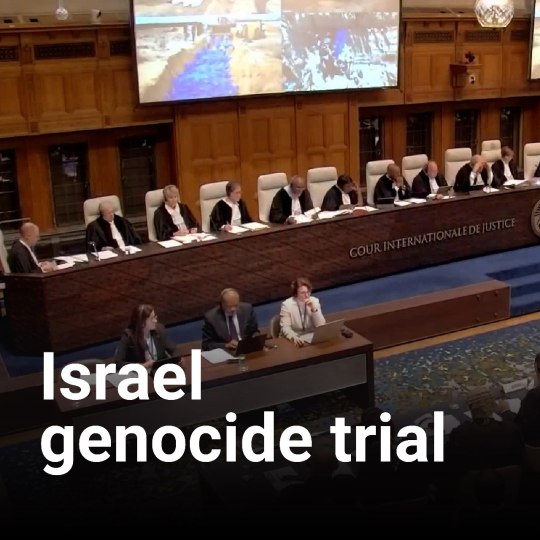
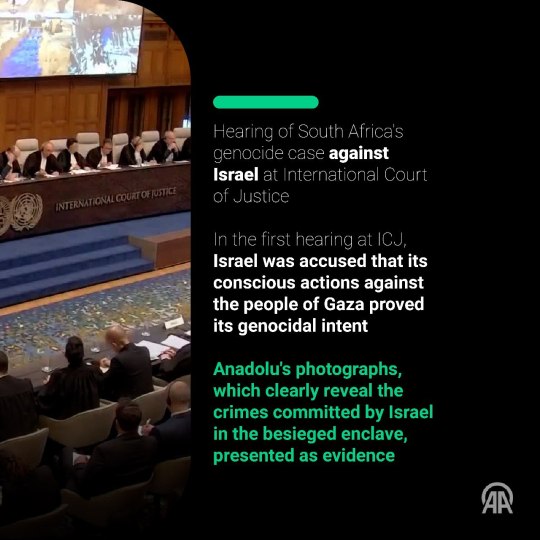
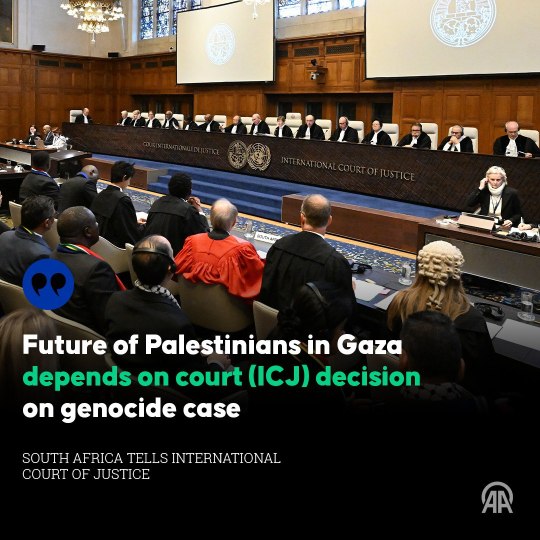
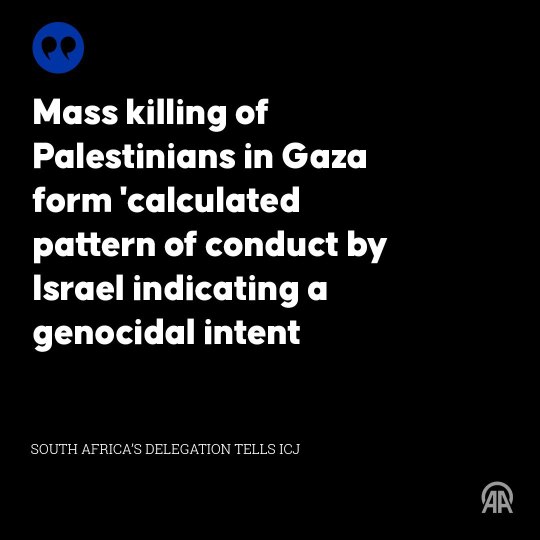
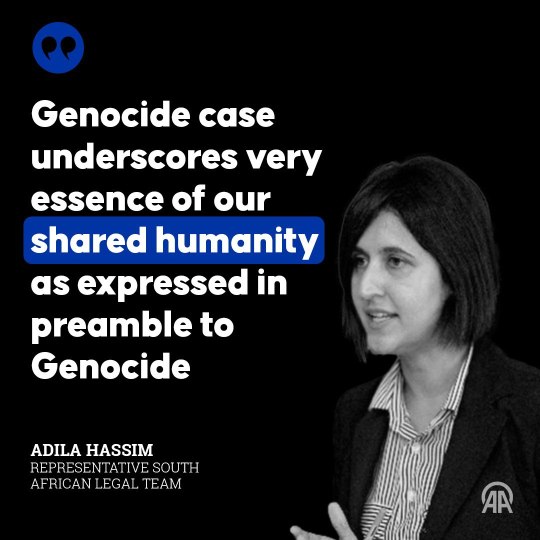
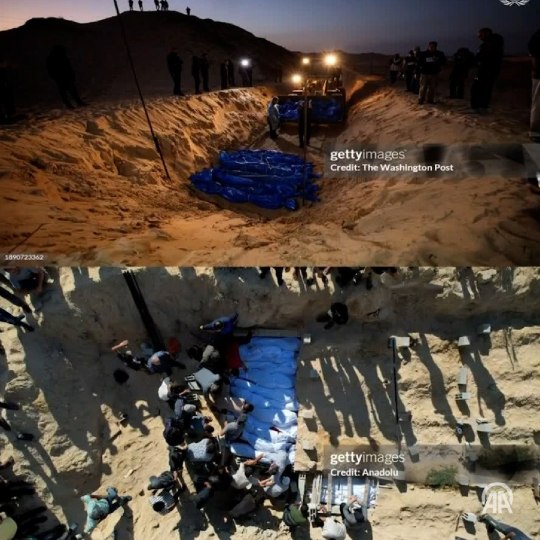
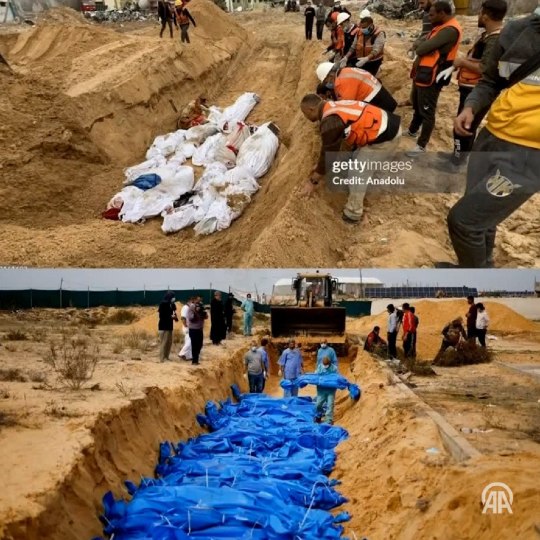
[South Africa demands International Court of Justice impose provisional measures on Israel to halt its assault on Gaza. South Africa's delegation underscored the mass killing of Palestinians in Gaza, saying it formed a 'calculated pattern of conduct by Israel indicating a genocidal intent']
🇿🇦🇮🇱 🚨 GENOCIDE TRIAL BEGINS AGAINST THE ISRAELI ENTITY AT INTERNATIONAL COURT OF JUSTICE
The first hearings against Israel on charges of genocide are currently being held at the International Court of Justice in The Hague, Netherlands on Thursday, as Israeli occupation bombing and shelling continued to massacre entire families in the Gaza Strip.
The charges, brought against the Israeli entity by South Africa, were filed with the ICJ on Dec. 29th, 2023, accusing the Jewish apartheid-State of the crime of genocide, implemented as a matter of policy against the Palestinian population of the enclave.
South Africa filed the charges with the ICJ in a meticulously crafted case that included an 84-page report compiling evidence of genocide against the Palestinian population of the Gaza Strip by the Israeli occupation.
In the 84-page document, South Africa accuses the Israeli entity of creating conditions "conducive to [the Palestinian population's] physical destruction," which South Africa and several other Arab and African nations believe constitutes the crime of "genocide" being inflicted against the native population of the enclave, by the mostly European Jewish colonists.
The hearings, which are being held in The Hague, Netherlands, will be exclusively addressing the request by South Africa that the International community take urgent measures to direct the Israeli occupation to cease and disist its military operations in the Gaza Strip while the Court hears evidence in the case, a process that can span several years.
Hearings began with a statement by South Africa's Deputy Attorney General and Minister of Justice, Ronald Lamola, followed by a presentation from the South African representative.
Early on in the hearings, Adila Hassim, an advocate of South Africa's High Court, began setting the stage for the current conflict by describing for the Court the events of 1948 and the Nakba, arguing that the Palestinian people faced a "catastrophe" that year, with the Israeli entity depriving the Arab population of their non-negotiable Rights, such as the right of return and self-determination.
The advocate called for the immediate end to discriminatory policies targeting Palestinians, and pointed out that Israel's aggression against the Arab population has escalated.
Hassim also pointed to Israel's system of apartheid imposed on the Palestinian people, along with the blockade and siege of the Gaza Strip, and described for the Court the ways in which Israel incites violence against Palestinians, in direct contravention of the Genocide Convention.
“We, along with representatives of the state of Palestine and human rights, file this lawsuit on behalf of the citizens of Gaza who cannot live in safety,” Hassim told the Court.
Later on in the hearings, South Africa's Minister of Justice, Ronald Lamola, added that “no armed attack on any territory, however grave its danger (…) can justify violations of the Convention," and accused the Israeli occupation of failing to uphold its obligations under International Law and the Genocide Conventions.
Over the course of two days, the Court will hear South Africa's justifications for filing the case with the ICJ, and will hear Israel's response on Friday.
Several Arab and African nations have also voiced support for South Africa's case of genocide against the Israeli occupation, including Jordan, Turkey, Libya, Pakistan, Bangladesh, the Maldives, Venezuela, Namibia, Nicaragua, Malaysia, Indonesia, Bolivia, Colombia, Brazil, as well as the Organization of Islamic Cooperation (OIC), comprising 57 Muslim-majority countries, and the members of the Arab League as well.
More than 200 Professors, academics and experts in International Law, the majority of which being from prestigious universities in the United States, have also endorsed South Africa's case against Israel.
More than 23'000 Palestinian civilians have been killed in Israel's genocidal war on Gaza, with nearly 60'000 wounded, 70% of whom are women and children, and with another 7'000 or more buried under the rubble.
#source
#graphicsource1
#graphicsource2
@WorkerSolidarityNews
#south africa#apartheid#genocide#israel#israeli occupation#israel news#palestine#palestine news#gaza#gaza news#gaza war#gaza strip#gaza genocide#genocide in gaza#israeli genocide#genocide of palestinians#israeli war crimes#war crimes#crimes against humanity#war#politics#news#geopolitics#middle east#world news#global news#international news#breaking news#current events#israel palestine conflict
83 notes
·
View notes
Photo

International recognition of Western Sahara
by factswithmaps
The Sahrawi Arab Democratic Republic was proclaimed by the Polisario Front on 27 February 1976, in Bir Lehlou, Western Sahara. SADR claims sovereignty over the entire territory of Western Sahara, a former Spanish colony; however, at present the SADR government controls only about 20–25% of the territory it claims. It calls the territories under its control the "Liberated Territories".
As of July 2021, the Sahrawi Arab Democratic Republic is recognized by 39 out of a total of 193 United Nations member states. At different times, the Sahrawi Arab Democratic Republic has been recognized by 84 UN member states, but, of these, 45 have since "frozen" or "withdrawn" recognition. SADR has, at some point in time, been recognized by 43.5% of United Nations (UN) member states, 38 out of the other 54 (70%) African Union (AU) member states, 18 out of 57 (32%) Organization of Islamic Cooperation (OIC) member states, and 5 out of 22 (23%) Arab League (AL) member states. Several states that do not recognize the Sahrawi Republic nonetheless recognize the Polisario Front as the legitimate representative of the population of the Western Sahara, but not as the government-in-exile of a sovereign state.
67 notes
·
View notes
Text

By: Jacob McHangama
Published: Aug 9, 2023
In 2005 a Danish newspaper published a number of cartoons depicting the prophet Muhammed, which led to a global battle of values over the relationship between freedom of expression and religion. Despite multiple terrorist attacks—one of them deadly others thwarted—and concerted diplomatic pressure from the 57 Muslim-majority member states of the Organization of Islamic Cooperation (OIC) led by countries like Pakistan, Egypt, Saudi Arabia, and Iran, the Danish government held firm and refused demands to impose Islamic blasphemy norms.
However, recent events have shattered this resolve. Following months of of public Quran burnings in Denmark and Sweden, as well as renewed and increased pressure from the OIC and attacks on the Swedish embassy in Iraq and a Danish non-governmental organization in Basra last month, Scandinavian democracies are retreating from their liberal principles.
On July 30, Danish Foreign Minister Lars Løkke Rasmussen announced that the government will seek to enact legislation for "special situations where other countries, cultures, and religions could be insulted, potentially resulting in significant negative consequences for Denmark." Sweden is mulling over similar actions. These capitulations have forced these countries to debate how far they are willing to go to defend their freedoms in the face of violence and international backlash.
On the one hand, there are good reasons to be critical of book burnings. It is a poor substitute for reasoned debate and one that will forever be associated with totalitarian states, such as Nazi Germany, in our collective history. But however noxious the ideas of the far-right protestors who torch Qurans, they are not state agents, they are not speaking for the government, nor do they have the power to censor or discriminate. They are private individuals whose non-violent symbolic expressions are intended to convey a message, which however, offensive to those who disprove, is part and parcel of free expression.
The violence that accompanies these events stems both from terrorist groups as well as from counter protestors who insist that religious taboos can only be enforced through mob intimidation and violence, but they are mistaken.
In July, an Iranian citizen burned the Danish and Swedish flags as well as the Bible and Torah in front of the Israeli embassy in Copenhagen, praising Ayatollah Khomeini in the process. But few Danes cared about this deliberate attempt to provoke. No one threatened to use violence, and the protester was not arrested. Rather than demonstrating Danish hypocrisy, the protester managed to show how a secular society committed to both free speech and tolerance can handle offensive ideas, and also how these values serve as the antithesis to violence.
Despite these and other demonstrable merits of free speech, the recent steps taken by Denmark and Sweden reveal a concerning trend. Bowing to intimidation from politically authoritarian and religiously oppressive states sets a perilous precedent and gives oppressive regimes potential leverage to further undermine democratic principles. To sweeten this bitter pill the Danish government has been less than factual in its messaging. Danish Prime Minister Mette Frederiksen said that burning “sacred books” does not constitute an expression, despite established case law to the contrary. The government has also said that Denmark and Sweden are global outliers when it comes to permitting the desecration of “sacred books” even though both Norway and the Netherlands protect such symbolic expression. There are already also strong reasons to believe that the OIC will not be appeased by the proposed Danish legal restrictions, however rationalized.
The next day after the Danish government´s promise to explore legal remedies against Quran burnings, the OIC released a strongly worded statement admonishing Denmark and Sweden for failing to immediately criminalize them and pledging to continue to pursue the matter. The Turkish ambassador to Denmark also warned that the proposed Danish efforts were "insufficient." In other words, once democracies yield from principle, authoritarian states will not respond with gratitude and conciliatory attitudes but demand that the self-imposed restrictions on free speech be expanded more broadly. This is not only true in Scandinavia but also on the global stage.
Earlier this month, the OIC managed to secure a crucial win at the U.N.´s Human Rights Council with a resolution that calls on member states to, among other things, “address, prevent and prosecute acts and advocacy of religious hatred” as a direct response to the Scandinavian Quran burnings. The OIC argues that defamation of religious ideas and symbols constitutes incitement to religious hatred—a category of speech prohibited under international human rights law and in most European democracies. This would not just legitimize but also give legal teeth to the suppression of religious dissent, and would remove the stigma from countries where blasphemy and apostasy is severely punished.
This marks a radical departure from back in 2011, when the Obama Administration rallied democracies around the world and spearheaded a pivotal Human Rights Council Resolution to halt the OIC´s long-standing efforts to internationalize blasphemy laws. The 2011 resolution advocated education and counter-speech against religious intolerance, asserting the protection of people, not ideologies, under human rights law. It called for the penalization of "incitement to imminent violence based on religion or belief," underlining that free speech restrictions should shield individuals from tangible harm, not defend abstract religious ideas from criticism or mockery, however offensive. As then Secretary of State Hillary Clinton said the resolution was a step to overcome “the false divide that pits religious sensitivities against freedom of expression.”
While this broader, international perspective is critical, it is also important to consider the domestic implications of the laws Denmark and Sweden have on the table. The Danish government´s proposed legal remedy against insulting other countries doesn’t only threaten to restrict criticism of Islam. In fact, Danish Muslims protesting U.S. or Israeli foreign policy, or the mass internment of Uighur Muslims by China, could end up on the wrong side of the law, if they protest in ways deemed “insulting” to the U.S., Israel, or China and detrimental to the broad and nebulous concept of “Danish interests.”
Moreover, the Danish and Swedish governments’ misguided attempt to foster tolerance through censorship could inadvertently exacerbate social divisions within their own borders. Hard-nosed critics of Islam and Muslim immigration frequently argue that Islam is incompatible with democracy and freedom, painting Muslims as a fifth column. The external pressure from Islamic states, coupled with support for restrictive measures among some Danish Muslims, risks emboldening these divisive narratives. This stands to harm the many Scandinavian Muslims who appreciate the freedoms and equality that Denmark and Sweden offer, and which sets these countries apart from the Muslim-majority states of the OIC.
Free speech is a difficult principle to uphold consistently. Governments and citizens of democracies alike are frequently tempted to sacrifice this principle when faced with threats or adverse consequences of unpopular or extremist speech. But one only has to compare the vibrant democracies of Denmark and Sweden to the authoritarian regimes of Iran and Saudi Arabia to realize that, for all its flaws, free speech makes the world more tolerant, democratic, equal, and free. Denmark and Sweden’s defection from this core liberal principle is a dark day for the global fight for free speech.
==
You don't surrender or capitulate to bullies. Not even when they're pretending to be the victim.
#Islam#blasphemy#blasphemy laws#islamic fragility#religious hypocrisy#Denmark#Sweden#koran#free speech#freedom of speech#religion#religion is a mental illness
17 notes
·
View notes
Text
What will become of Hamas after the end of its war against Israel? Given the organization’s ties to and support from Iran, its long-term future remains connected to the broader issue of Tehran’s role in the Middle East. The future connection of Iran to whatever remains of Hamas will overshadow any short- or medium-term scenarios in the Hamas-Israel war. If the United States is serious about eliminating the threat presented by Hamas to Israel, the Palestinian Authority, and Middle East stability, the United States must acknowledge the centrality of Iran’s destabilizing activities across the region and address it seriously.
Israel is not yet presenting a coherent scenario regarding the postwar governance of Gaza—beyond being clear about who Israel does not want to govern Gaza: the leadership of the military wing of Hamas. Israel is framing its assault on Gaza as necessary for the achievement of the objective of eradicating this military leadership, which in more concrete terms likely means the pursuit and killing of figures like Yehia Sinwar, Hamas’s Gaza Strip leader; Mohammed Sinwar, a military operations leader; Mohammed Deif, leader of Hamas’s military wing, the Izz ad-Din al-Qassam Brigades; and Saleh al-Arouri, the brigades’ co-founder.
But as was the case with other militant groups connected to Iran, decapitating a group by eliminating its military leaders does not result in the group’s dissolution. The killing of Hezbollah leaders did not cause that organization to collapse, nor did the Islamic Revolutionary Guard Corps’ Quds Force dissolve after the killing of its chief, Qassem Suleimani. The Iran-supported Popular Mobilization Forces are also still in existence in Iraq, despite the killing of the group’s deputy head and most powerful figure, Abu Mahdi al-Muhandis.
For as long as Iran regards these militant groups as necessary to its regional influence, it will continue to support them and allow them to regenerate themselves after military setbacks and leadership losses. Although Hamas is not Iran’s most important regional asset, Tehran will not give up its Palestinian cards easily. After all, it is the Palestinian cause that Iran uses as an excuse for its support of militant groups across the Middle East, presenting those groups as part of an “axis of resistance” against U.S. imperialism and Zionism.
Iran is not the only country that has benefited from Hamas. Israeli Prime Minister Benjamin Netanyahu supported Hamas’s rule in Gaza to bolster his political standing within Israel. Despite Egypt’s antagonism toward the Muslim Brotherhood, of which Hamas is an offshoot, Cairo sees Hamas as a useful security actor that has managed to keep the military dynamics in Gaza from spilling across the border and creating instability inside Egypt. Cairo will not readily accept an alternative to Hamas unless it comes with credible security guarantees.
Despite Israel’s hard-line rhetoric about Hamas, if it succeeds in eliminating Hamas’s military leaders in the short term, a medium-term scenario of Arab-Israeli acceptance of a minor role for a reformed version of Hamas is not far-fetched. Such an iteration of Hamas would be in line with the statement issued following the joint Arab League-Organization of Islamic Cooperation (OIC) summit in Riyadh earlier this month. The statement emphasizes recognizing only the Palestine Liberation Organization (PLO) as the legitimate representative of Palestinians—but also states that all other Palestinian factions should operate “under a PLO-led national partnership.”
At first glance, the national partnership proposed in the Arab League-OIC statement appears more nuanced than the usual power-sharing arrangements among ruling elites that are a common feature of conflict resolution in the region. The proposal is not calling for power sharing between the PLO and Hamas. Rather, the idea is that Hamas—or at least its pragmatic elements—agrees to operate as a subsidiary political actor under the umbrella of the PLO. In theory, this kind of arrangement could mitigate the power abuses and political paralysis that elite bargains have frequently created in places like Lebanon, Iraq, or Libya.
Whether Hamas will go along with this plan is questionable. One of Hamas’s objectives in the Oct. 7 assault on Israel was to highlight the weakness of the PLO and Palestinian Authority, affirming that Hamas is the only true voice of the Palestinian people. Hamas will not want to be seen as having made a huge political compromise.
Some figures from the political leadership of Hamas who are abroad—especially the group’s Qatar-based political leader, Ismail Haniyeh—will likely accept becoming a part of the proposed national partnership. On Nov. 9, Haniyeh led a delegation that included the leader of Hamas’s diaspora office, Khaled Meshaal, to meet with Egyptian intelligence chief Abbas Kamel in Cairo. Haniyeh has also been involved in discussions with other Arab countries. Behind-the-scenes talks among Egypt, Qatar, and the United Arab Emirates (UAE) since the war started point to the plausibility of Haniyeh playing the role of Hamas representative in a new Palestinian political coalition that would extend the rule of the Palestinian Authority from the West Bank to Gaza.
With Hamas enjoying popular support among Palestinians despite documented criticism of Hamas’s governance by the residents of Gaza before Oct. 7, forming this Palestinian national partnership would avoid the complete exclusion of Hamas from power. The political exclusion of Hamas could cause anger among some hardcore supporters and turn them into an insurgency with continued support from Iran—a scenario Arab states are aware of and wish to avert. For Tehran, on the other hand, minimal representation for Hamas in a future Palestinian coalition will not suffice.
Even if a figure like Haniyeh agrees to compromise and Hamas is drastically weakened militarily, the proposed PLO-led coalition is only a medium-term scenario. In the longer term, it is highly unlikely that an Iran-backed group such as Hamas would limit its ambition to a minor role in power.
Hamas’s founding charter was firm in its rejection of the existence of Israel and the two-state solution. Hezbollah’s founding charter was similarly rejectionist of the Lebanese secular state. Both groups revised their charters later on. Hamas’s new charter of 2017 gives tacit agreement to the formation of a Palestinian state according to the 1967 borders, which was echoed by Haniyeh in his recent remarks about accepting the two-state solution. Hezbollah gradually began integrating into Lebanese state institutions as a political actor, taking part in parliamentary elections since 1992 and becoming part of the government. Hezbollah’s revised manifesto of 2009 presents the group as a political player within the Lebanese state.
But parallel to Hezbollah’s gradual integration into the Lebanese state, the group escalated its intimidation of political opponents as part of a long-term power-grab strategy. In 2008, this resulted in a de facto change in the Lebanese constitution, whereby Hezbollah was granted official legitimacy as an armed defender of Lebanon operating separately from the Lebanese Armed Forces. Since then, Hezbollah has continued its aggressive pursuit of power, and today it is the leading political force in Lebanon. Even if it chose a pragmatic path to power, it has not given up on its ambition to control Lebanese politics and advance Iran’s regional influence.
The story of Hezbollah illustrates that Iran-backed groups will not be satisfied with a minor political role in the long term. If Iran keeps backing them, they will take advantage of their presence in power to act as spoilers and claim greater clout. As long as Iran remains in the picture as their supporter, those groups remain Iranian influence tools no matter how pragmatic they may appear.
If the joint Arab League-OIC statement proposal can be implemented, it would be only a medium-term solution. It would give Arab countries and Israel time to engage in a revived peace process under the terms of the Arab Peace Initiative of 2002. It maintains Egypt’s security ties with Gaza and Qatar’s political ties with the pragmatic elements of Hamas. And it allows Saudi Arabia to resume normalization talks with Israel.
Iran, on the other hand, does not want the Israel-Palestine conflict to be resolved. And it will not want to see the Palestinian Authority make political gains at the expense of Hamas, especially after Hamas stated that its Oct. 7 attack succeeded in “putting the Palestinian issue back on the table.” Another likely reason for the timing and brutality of Hamas’s attack was to torpedo normalization between Saudi Arabia and Israel, to which Iran is firmly opposed.
Even if Hamas is reduced to a rump organization in Gaza, Iran will weaponize local grievances to resurrect a version of Hamas in the long run. Like the pre-war Hamas, the new Iran-backed version will continue to be a spoiler. This is similar to Hezbollah in the early 1980s: When, in 1984, Israel-linked operatives killed Ragheb Harb, a key leader of the Shiite resistance, Hezbollah was still in its formative phase. By the following year, Hezbollah had issued its first charter and developed into a more coherent organization thanks to a mixture of local grievances and Iranian commitment.
While countries like Saudi Arabia and the UAE are engaged in various forms of de-escalation with Iran, neither of those countries is naïve about the threat that Iran poses to its interests in the region. Their de-escalation efforts are, to a large degree, driven by U.S. disengagement on the issue of Iran’s role in the Middle East, which has left those Arab countries alone in finding ways to reduce tension with Iran in the absence of alternatives.
Washington must take advantage of the Arab League-OIC statement to buy time to develop, together with its Arab allies, a comprehensive strategy toward Iran that puts Iran’s nuclear enrichment, ballistic missile program, regional interventions, and proxy groups in the same priority file—and connect that file to the Israel-Palestine peace process. Only by addressing the Iranian role in this comprehensive way can there be more clarity about what happens to Hamas after the war.
10 notes
·
View notes
Text
Iran has urged Muslim countries to cut all relations with the Israeli regime as means of pressuring Tel Aviv to end its ongoing genocidal war on the Gaza Strip.
Foreign Minister Hossein Amir-Abdollahian made the remarks on Saturday, addressing the 15th Heads of State and Government Summit of the Organization of Islamic Cooperation (OIC) in Gambia’s capital Banjul.
“Beyond doubt, this time period will also pass by, despite all its hardships and adversities for the Palestinian nation,” he said.
“However, the manner and quality of the role that is played by us, Muslim states, in the face of this crisis will go down in history,” the top diplomat added.
“Undoubtedly, severance of diplomatic and economic ties and [imposition of] practical arms and trade embargo [on Israel] serves as an important means of cessation of its genocide in Gaza and atrocities in the West Bank and the Noble al-Quds.”
At least 34,654 people have died in Gaza since October 7, when the Israeli regime began the war in response to al-Aqsa Storm, a retaliatory operation by the coastal sliver’s resistance groups.
Despite the unabated campaign of bloodshed and destruction, the regime has so far fallen short of realizing its goals, including defeating Gaza’s resistance, causing forced displacement of the territory’s entire population to neighboring Egypt, and enabling the release of those who were taken captive during al-Aqsa Storm.
Amir-Abdollahian said Gaza’s developments proved that elimination of the Palestinian resistance “was nothing but an illusion.”
“Because the Israeli regime is not a legitimate government. It is only an occupying apartheid power,” he said, adding, “Passage of time is not going to lend legitimacy to an occupying power.”
The foreign minister asserted that realization of sustainable peace and security in the region was only possible through cessation of the regime’s occupation of Palestine, Syria, and Lebanon, return of the Palestinian refugees to their homeland, and manifestation of Palestinians’ right to self-determination.
#Resistance#Iran#Lebanon#Syria#Free Palestine#Gaza#Gaza Genocide#Rafah#Keep Talking About Palestine#War#Refugee#Occupation#Organization of Islamic Cooperation
3 notes
·
View notes
Text
Germany’s announcement of support for Israel on Friday, the day the hearings closed, has symbolic significance given its history of the Holocaust, when the Nazis killed 6 million Jews in Europe. Israel was created after World War II as a haven for Jews in the shadow of those atrocities.
...
The EU has only said that countries have a right to bring cases to the U.N. court. Most of its member states have refrained from taking a position.
Turkey, which is in the process of joining the EU, was a lone voice in the region. Turkish President Recep Tayyip Erdogan said his country provided documents that were being used against Israel in the case.
...
The Organization of Islamic Cooperation was one of the first blocs to publicly back the case when South Africa filed it late last month. It said there was “mass genocide being perpetrated by the Israeli defense forces” and accused Israel of “indiscriminate targeting” of Gaza’s civilian population.
The OIC is a bloc of 57 countries that includes Iran, Iraq, Saudi Arabia, Qatar and Egypt. Its headquarters are in Saudi Arabia. The Cairo-based Arab League, whose 22 member countries are almost all part of the OIC, also backed South Africa’s case.
South Africa drew some support from outside the Arab world. Namibia and Pakistan agreed with the case at a U.N. General Assembly session this week. Malaysia also expressed support.
...
China,Russia — which is also facing allegations of genocide in the world court — and the emerging power of India have largely remained silent, seemingly aware that taking a stand in such an inflammatory case has little upside and could irreversibly upset their relationships in the region.
India’s foreign policy has historically supported the Palestinian cause, but Prime Minister Narendra Modi was one of the first global leaders to express solidarity with Israel and call the Hamas attack terrorism.
...
A handful of South American countries have spoken up, including the continent’s biggest economy, Brazil, whose Foreign Ministry said President Luiz Inácio Lula da Silva backed South Africa’s case. However, the ministry’s comments did not directly accuse Israel of genocide but focused on the need for a cease-fire in Gaza.
2 notes
·
View notes
Text
International Symposium on the "History and Legacy of Muslims in the Caribbean"
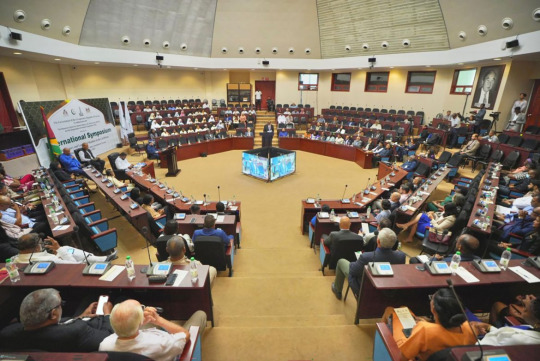
ircica.org
International Symposium on the "History and Legacy of Muslims in the Caribbean"
OIC IRCICA
6–8 minutes
The International Symposium on the “History and Legacy of Muslims in the Caribbean” organized by IRCICA, OIC General Secretariat, the Government of Guyana and Guyana University was opened by President H.E. Mohamed Irfaan Ali with a Feature Address on 4 September 2023. IRCICA Director General Prof. Mahmud Erol Kılıç gave an address at the opening ceremony. Moderated by Mr. Al Creighton, Dean of the Faculty of Humanities and Education of the University of Guyana, the ceremony started with Quran recitation and translation by Hafiz Salih Rahim, and heard the opening remarks of H.E. Mr. Hugh Hilton Todd, Minister of Foreign Affairs and International Cooperation; Dr. Abdullah Hakim Quick, Special Envoy of IRCICA to the Caribbean; Dr. Alhoucine Rhazoui, Director of Cultural Affairs, OIC General Sceretariat, as well as cultural items, consisting of the Islamic Chant in Urdu recited by Mr. Imran Ali, Deputy President of the Muslim Youth Organization, and the Islamic Chant in Yoruba language presented by Mr. Toyib Hamza. A press conference followed the opening session. The ceremony and the working sessions were held at Arthur Chung Conference Center in Georgetown.
Subsequently, the same day, IRCICA Director General Prof. Mahmud Erol Kılıç was received by H.E. President Mohamed Irfaan Ali for a welcoming meeting. Professor Kılıç briefed H.E. the President about IRCICA’s objectives and activities. Mr. Hugh Hilton Todd, Minister of Foreign Affairs and International Cooperation, high officials from Guyana, and the IRCICA delegation members, were also present at the meeting. Director General Prof. Kılıç presented H.E. President Irfaan Ali and Foreign Affairs Minister Mr. Hugh Todd with samples of IRCICA’s publications in the series of studies on the Holy Qur’an.
The working sessions of the symposium, spread over three days, were on the following themes:
First day, Session I: Globalization and Localization in the Caribbean: Aliyah Khan, University of Michigan, | The Qasida and Muslim Devotional Music in Guyana and Trinidad; Frank J. Korom, Boston University | The Current State of Hosay (Moharram) Observances in the Caribbean; Abdin Chande, Adelphi University | Migration and Identity of South Asians of the Caribbean and East African Indian Ocean Region: A Comparative Analysis; Maurits S. Hassankhan, Anton de Kom University of Suriname | Localization and Globalization of Religion: The Case of Hindustani Muslims in Suriname.
Session II: Islam in the Greater Caribbean from Early History to Today: Abdullah Hakim Quick, The Islamic Institute of Toronto | Aspects of Muslim History and Legacy in Pre-Columbian America; Juan Thomas Ordóñez, Universidad del Rosario | Caribbean Lebanon: The Muslim Experience on the Colombia/Venezuela Border; Mohamed A. Hakim, Islamic Educator and Social Activist in Haiti | History of Muslims in Haiti; Nuri Muhammad, Imam, Radio Commentator and Social Activist | The Evolution of Muslim Presence in Belize and the Significance of Garifuna Cultural Retrieval;
Session III: Panel on Black Atlantic Muslim Movements – Remapping and Theorizing Global South Migrations: Youssef Carter, University of North Carolina-Chapel Hill | Western Sunrise in the Global South: The Islamic Party comes to the Caribbean; Tasneem Siddiqui, Drexel University | The Caribbean Is No Island: Rethinking Black Geographies through Muslim Resistance Movements; Nsenga Knight, Artist & Storyteller | Irregular Black Muslims: Diasporic Exchange & The Caribbean Elsewhere.
Second day, Session I: Guyanese Experience: Ateeka Khan, McMaster University | East Indians, Religion, and Politics in 20th Century Guyana; Nazim Baksh, Former Investigative Producer with Canadian Broadcasting Corporation (CBC) | Conflict, Continuity and Change of Religious Narratives and Practices of Muslims in Guyana (1977-1981); Ahmad Hamid, Imam and Researcher | The Challenges and Role of CIOG in the Transformation of the Muslim Community of Guyana from Chaos to Stability; Wazir Baksh, Historian and Community Activist | The Masjid as an Essential Institution to Preserve Faith and Social Cohesion: The Case of Guyana.
Session II: Voices from Trinidad and Tobago: Halima-Sa’adia Kassim, University of the West Indies | An Evaluation of the Resultant Negotiations of Living in an Alien Society: The Indo-Muslims of Trinidad Claiming Their Place; Nasser Mustapha & Mirza Ali Mohammad, University of the West Indies | Race and Ethnic Relations in Trinidad and Tobago; Anand Rampersad, University of the West Indies | Successful Muslim Cricketers in Trinidad and Tobago.
Session III: Economy, Identity and Decolonization in the Caribbean: Ibraheem Musa Tijani, International Islamic University Malaysia | The Economic Development and Commerce of the Muslim Communities in the Caribbean and the Emergence of Islamic Finance in the Region; Stanley L. Soeropawiro, Policy Advisor Religious Affairs, Ministry of Home Affairs (Suriname) | Economic Development among the Javanese Muslims in Suriname; Karimah Rahman, Toronto Metropolitan University | Decolonizing Muslim Indo-Caribbean Mental Health; Suleiman Bulbulia & Sabir Nakhuda, Historians and Authors | The Muslims of Barbados: Sustaining A Muslim Identity.
Third Day, Special Presentation at the University of Guyana by: Abdullah Hakim Quick, Nuri Muhammad, Mohamed A. Hakim and Stanley L. Soeropowero.
The closing ceremony of the symposium was conducted with the remarks of Prof. Dr. Aboubacar Abdullah Senghore, Assistant Director General, IRCICA and Ambassador Elisabeth Harper, Permanent Secretary, Ministry of Foreign Affairs and International Cooperation of Guyana.
On 5 September 2023, IRCICA Director General Prof. Mahmud Erol Kılıç had a meeting with Professor Paloma Mohamed Martin, Vice-Chancellor of the University of Guyana. The meeting was a fruitful occasion to exchange views on research and education in Islamic studies.
During the symposium period, Director General Prof. Mahmud Erol Kılıç held contacts and meetings with Muslim cultural institutions and educational organizations in Guyana including the Central Islamic Organization of Guyana (CIOG), Guyana Islamic Trust and the ISA School.
2 notes
·
View notes
Text
NEW DELHI — India is scrambling to contain a diplomatic storm that has erupted in Islamic countries following controversial comments made about Islam and the Prophet Muhammad by two officials of the ruling Hindu nationalist Bharatiya Janata Party.
Saudi Arabia, Kuwait, Qatar, Oman, the United Arab Emirates, Iran and Pakistan have registered protests made by BJP’s national spokesperson during a recent televised debate.
Several of these countries summoned Indian ambassadors to denounce the derogatory statements. Calling the comments “Islamophobic,” Qatar has demanded a public apology from India. The controversy turned particularly embarrassing for India as it erupted while its vice president, Venkaiah Naidu, and business leaders were on a visit to the country.
Denouncing the statement, Saudi Arabia said it “reaffirms its permanent rejection of prejudice against the symbols of the Islamic religion.”
Besides official outrage, anger against the remarks poured out on social media in several Arab nations with some people calling for a boycott of Indian goods.
The influential Organization of Islamic Cooperation said they came in a "context of intensifying hatred and abuse towards Islam in India and the systematic harassment of Muslims." It also cited a decision by some states in India to ban the Muslim headscarf, the hijab, as well as incidents of violence against Muslims.
Rejecting the OIC’s comments as “misleading and mischievous,” the Indian foreign ministry said that the government accords the highest respect to all religions. In a statement, it said that the “offensive” comments and tweets “do not in any manner reflect the view of the government of India” and were made by individuals against whom action has been taken.
The foreign ministry criticized Pakistan, which had also condemned the remarks, calling it a “serial violator of minority rights” and saying that it should not engage in “alarmist propaganda.”
BJP spokesperson Nupur Sharma, who made the remarks, was suspended by the party while Naveen Jindal, the media head of the Delhi party unit, who had tweeted on the issue, was expelled on Sunday.
“The BJP strongly denounces insults of any religious personalities of any religion. The BJP is also against any ideology which insults or demeans any sect or religion. The BJP does not promote such people or philosophy," the party said in a statement.
Sharma said on Twitter that there was never any intention to hurt anyone’s feelings and that she spoke in response to comments made about a Hindu god.
Sporadic protests have also erupted in some Indian states as the remarks caused anger among Muslims, who are India’s largest minority, making up 14 percent of the country’s 1.4 billion people.
The remarks are being seen in the context of what critics say is a rise in hate speech targeting Muslims since the Bharatiya Janata Party came to power in 2014.
In an editorial, The Indian Express newspaper said, “The truth is that it was no sudden eruption of bigotry. The BJP’s electoral victories since 2014, and especially after 2019, have emboldened party activists and others of the saffron brigade to an extent that they indulge in casual everyday anti-minority actions.” By saffron brigade, the paper was referring to Hindu nationalists.
Political commentators said such controversies could set back India’s effort to enhance ties with Persian Gulf countries, which has been a key focus of Prime Minister Narendra Modi’s government. Tens of thousands of Indians work in the UAE and in Gulf countries like Kuwait, and New Delhi is also trying to strengthen trade ties with these nations.
The U.S. State Department, in its latest annual report to the Congress on international religious freedom, named India as among countries that were violators of religious freedom. It alleged that attacks on members of minority communities, including killings, assaults and intimidation took place in India throughout 2021.
__________________________
Had to dig around to find out what she said, can't find a quote but it's something about Aisha and her age when Muhammad married her and consummated that marriage.
Not sure which side she took.
13 notes
·
View notes
Text
Everything about Organization of Islamic Cooperation
Organization of Islamic Cooperation
Organization of Islamic Cooperation
Q. Why is this in News?
Recently, the Organisation of Islamic Cooperation (OIC) condemned and denounced the comments on Prophet Muhammed made by two Indians.
Ministry of External Affairs rejected the OIC comments, adding that the views expressed by the individuals did not reflect the views of the Indian government.
Earlier, India has lashed out at the OIC…
View On WordPress
3 notes
·
View notes